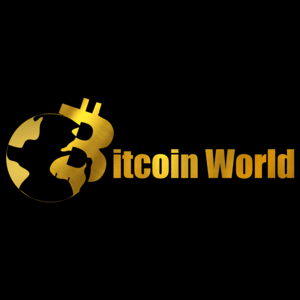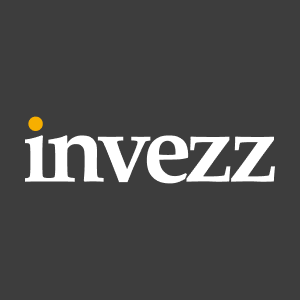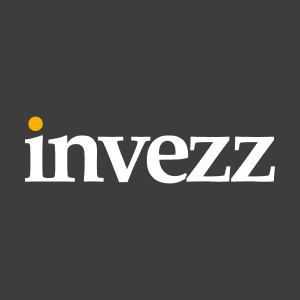Strategic Move: KuCoin Eyes South Korea Return Amid Global Regulatory Push
5 min read
The dynamic world of cryptocurrency never stands still, and major players are constantly navigating complex landscapes to expand their reach. One such player, KuCoin Exchange, a prominent global crypto exchange , is reportedly setting its sights on re-entering the lucrative South Korea crypto market . This move comes after a period of absence due to past regulatory challenges, signaling a strategic effort to regain ground in a key Asian market. Why is KuCoin Eyeing a KuCoin South Korea Return? South Korea represents a significant and technologically advanced market for cryptocurrency trading. It boasts a high rate of crypto adoption and a large, active trading community. For a major platform like KuCoin, being present in South Korea is crucial for global market share and influence. The reported plan for a KuCoin South Korea reentry suggests the exchange sees potential for growth and is willing to tackle the regulatory hurdles that previously led to its departure. According to reports, KuCoin CEO BC Wong indicated the exchange’s intention to return. However, he also highlighted that this reentry isn’t an immediate priority. The exchange is focusing its efforts first on meeting the demanding regulatory requirements in other major global regions. Navigating the Global Regulatory Landscape for a KuCoin Return Before making a significant push back into the South Korea crypto market , KuCoin is prioritizing compliance in key jurisdictions like the United States, the European Union, and China. This focus underscores the increasing importance of regulatory adherence for any global crypto exchange operating internationally. United States: The US market is complex, with multiple regulatory bodies (SEC, CFTC, FinCEN) and varying state-level rules. Compliance often requires strict KYC/AML procedures and potentially registering as a money transmitter or even a securities exchange, depending on the assets listed. European Union: While MiCA (Markets in Crypto-Assets Regulation) aims to standardize rules across member states, KuCoin’s EU CEO noted challenges with inconsistent application, making pan-European operations complicated despite the overarching framework. China: The regulatory environment in China remains highly restrictive for crypto exchanges dealing with domestic users, though there are ongoing developments related to blockchain technology and digital yuan. Navigating this landscape requires careful consideration of local policies. Successfully meeting the diverse requirements in these major regions is a massive undertaking and likely a prerequisite for tackling the specific demands of crypto regulation in South Korea. Is Crypto Regulation Becoming Protectionist? An interesting point raised by KuCoin CEO BC Wong is the suggestion that some regulators might be implementing policies that effectively push out global players to favor domestic platforms. This perspective highlights a potential challenge for international exchanges: navigating regulations that may not always be purely about compliance and investor protection, but also about fostering local industry. This potential trend could mean that even if KuCoin meets the technical requirements for crypto regulation in a country like South Korea, they might face additional, perhaps less explicit, barriers designed to give an advantage to local exchanges like Upbit, Bithumb, Coinone, and Korbit. Challenges with EU Crypto Regulation (MiCA) The European Union’s MiCA framework is designed to provide clarity and consistency for crypto assets and services across all member states. However, the experience of KuCoin’s EU CEO points to practical difficulties in its implementation. Inconsistent application of rules across different European countries can create operational headaches for a global crypto exchange trying to serve the entire bloc. This situation exemplifies a broader challenge in global crypto regulation : even with international or regional frameworks, local interpretations and enforcement can vary significantly, adding layers of complexity for companies operating across borders. What Does This Mean for the South Korea Crypto Market? A potential KuCoin return could bring several changes to the South Korea crypto market : Increased Competition: More competition could potentially lead to lower trading fees, better services, and more innovative offerings for South Korean users. More Trading Options: Global exchanges often list a wider variety of cryptocurrencies and trading pairs than local platforms, providing South Korean traders with access to new markets. Heightened Regulatory Scrutiny: KuCoin’s return would likely be under intense scrutiny from South Korean financial regulators, ensuring strict adherence to local laws, including real-name account requirements linked to specific banks. Potential for Innovation: Global players often bring new technologies and features, which could push domestic exchanges to improve their own platforms. However, the path for KuCoin South Korea reentry is not guaranteed. South Korea has strict rules, particularly concerning AML/KYC and the requirement for exchanges to partner with local banks for real-name accounts. Meeting these specific demands, on top of global compliance efforts, will be the key challenge. Actionable Insights for Traders and Investors For individuals interested in the South Korea crypto market or using a global crypto exchange like KuCoin, here are some points to consider: Monitor Regulatory Developments: Keep an eye on news regarding KuCoin’s progress in global compliance and any specific announcements about their plans for South Korea. Regulatory changes can significantly impact market access and operations. Understand Local Regulations: If you are a trader in South Korea, be aware of the specific requirements for using exchanges, such as real-name verification through local banks. Evaluate Exchange Options: Compare features, fees, security measures, and available assets across different exchanges, both local and international (where accessible), based on your trading needs. Diversify Platforms: Relying on a single exchange carries risks. Consider diversifying across multiple reputable platforms if possible and compliant with local laws. The potential return of KuCoin is a significant development that reflects the ongoing evolution of both the exchange’s strategy and the global crypto regulation landscape. Summary: The Road Ahead for KuCoin in South Korea KuCoin’s reported ambition to return to the South Korea crypto market highlights the country’s importance in the global digital asset space. However, this goal is part of a larger strategy focused on achieving comprehensive compliance across major jurisdictions like the US, EU, and China first. The exchange faces the dual challenge of meeting diverse global crypto regulation standards while potentially navigating protectionist tendencies in some markets and inconsistent rule application, even within frameworks like MiCA. A successful KuCoin return could inject new competition and options into the South Korean market, but it hinges entirely on their ability to meet stringent local requirements following their global compliance push. The journey back to South Korea is complex, but underscores KuCoin’s determination to operate as a fully compliant global crypto exchange in key markets worldwide. To learn more about the latest crypto market trends, explore our article on key developments shaping global crypto regulation and exchange strategies.

Source: Bitcoin World



